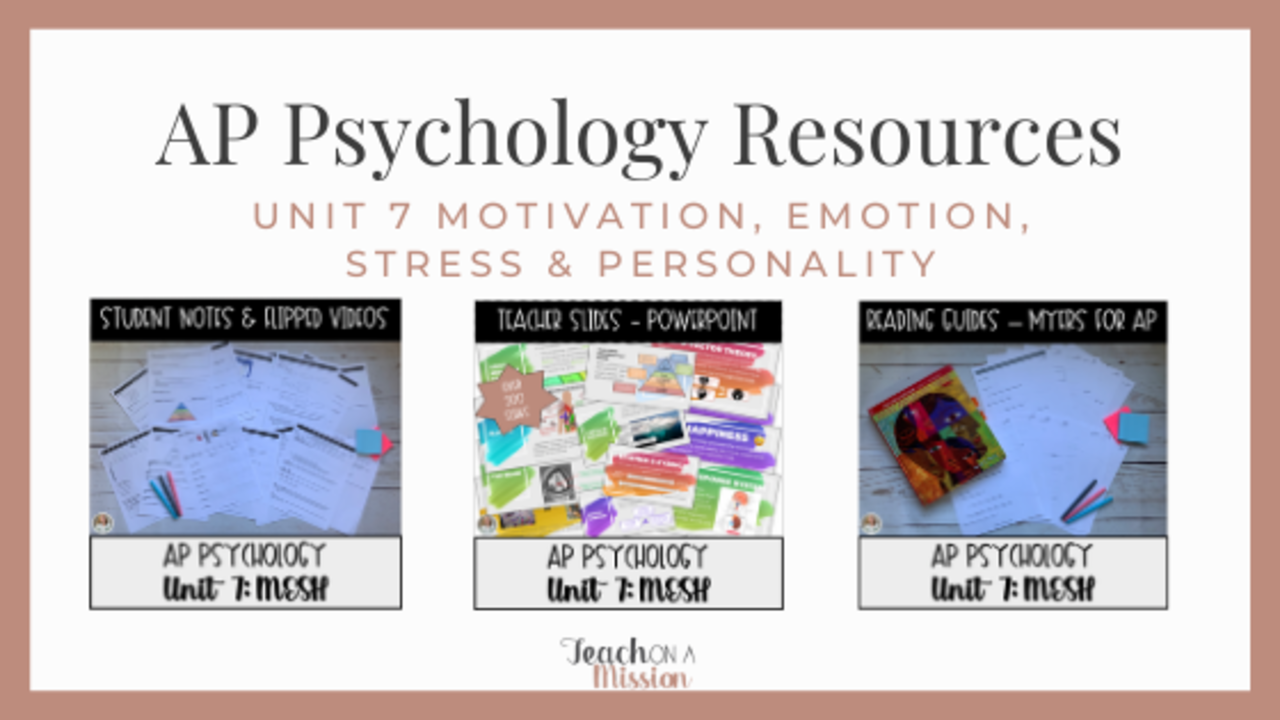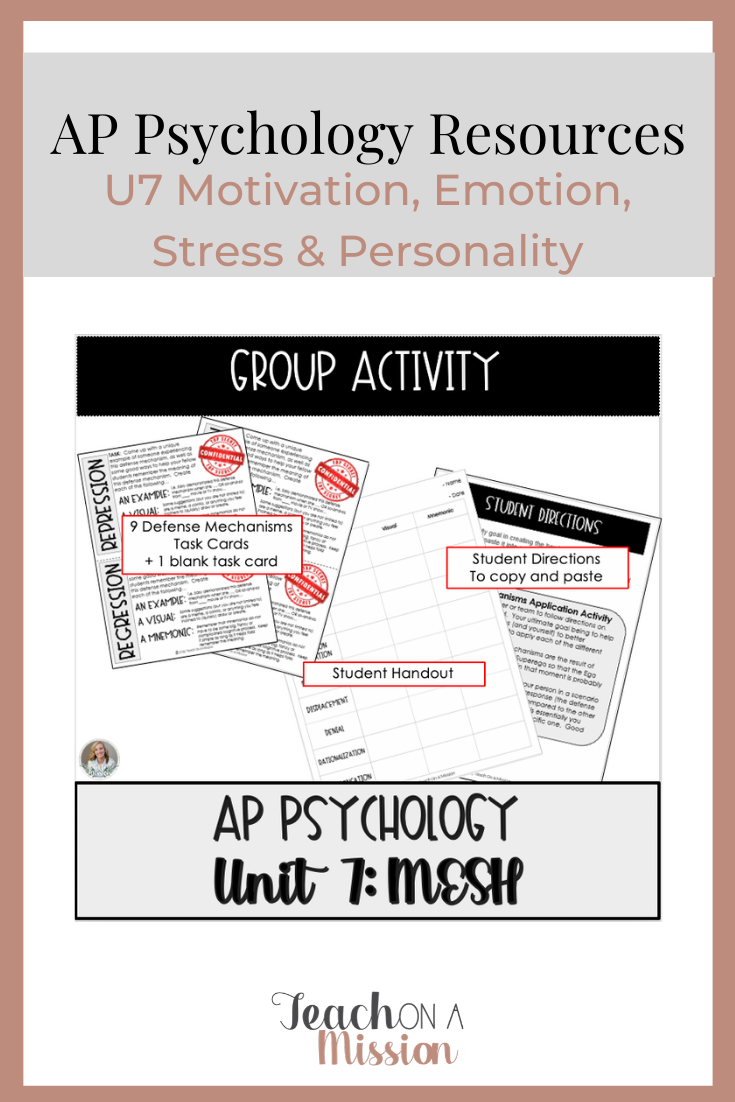AP® Psychology Resources for Unit 7 Motivation, Emotion, Stress & Personality

Phew. I've finished up the biggest haul of resources to date because of CollegeBoard's reorganization with the new CED in AP® Psychology.
Seriously - phew!
I can't wait to show it all to you, and to provide you with a fun free resource you can use to get your students up and moving just for sticking around here at Teach On A Mission.
So, what do we have here in Unit 7 - well it's a big one. Much like Cognitive Psychology, you'll want to be sure and keep this one nice and compartmentalized for students, helping them know where they are in their studies at all times.
I hope you find these resources helpful so you can spend time connecting with your students rather than on the wheel of content creation.
Slides
Let's start with the slides. There are 12 sets of powerpoint slides in 12 big topics covered throughout the unit. I like this unit in a flipped classroom, as I do all units, but I have to say the discussion that comes from these topics in class is pretty awesome. Be sure to check out the videos I've linked in the slides (also linked in the speaker notes) as well as some pointers I give in the speaker notes.
Student Notes & Reading Guides
Also linked in the image above are the student notes and reading guides for this unit (reading guides going with Myers' Psychology for AP® 1st edition and 2nd edition).
The notes follow right along with the slides, but also follow my flipped video notes on Youtube.
If you happen to flip your classroom (whether you use my videos or your own) this is a great unit to do it because there are SO many cool, engaging activities you can do with students to really get them to see and even feel (emotions) what you've been talking about.
Activities
And that's why I've tried to provide some really good ones. These activities are ones that will allow students to practice what they are learning, applying them or even creating real life examples in some cases.
First is the motivation and emotion theories drag and drop charts (stress is in there too). These provide definitions and examples students will drag and drop to the corresponding theories - like I said, practice, practice, practice.
These are very similar to the Development stages drag and drop charts you may have seen.
Next up is a fun group activity that's all on paper, well sort of, to go along with the Defense Mechanisms in the Psychoanalytic Theory of Personality. The defense mechanisms, in my opinion, are one of if not the only practical understandings Freud gave us. Not to mention they are REALLY easy to confuse. So we spend some time here creating, clarifying, and sharing in groups and as a class with this activity.
Last is a really fun Personality Profiler you can use once you've made it through all of motivation, emotion, and stress, AND personality. I do this as a relaxing, reflective activity at the end of the unit before we get heavy into reviewing it all before the test.
So what the heck is a "Personality Profiler" - it's a just a fancier name for personality test. I try to make it an engaging activity rather than just take tests, reflect.
Alright, now for the SUPER fun stuff.
Last year I wanted to try the Zombie Simulation I had seen discussed in the big AP® Psych teacher group on Facebook. So through some research and compiling of and creating resources, I did it.
Or, should I say, my students did it.
And the LOVED IT! Seriously - it was so fun. Many of them said, "This is like a real life video game." Although that wasn't what I was going for, or expected, it makes sense because those games are now so real for people - especially in the motivational, emotional, and stress levels one has when playing the game.
To say it was a success is an understatement. Their reflections were so real and articulate. But pulling it off was not easy.
So I want to help you.
I want to give you EVERYTHING I used and created to pull off the simulation.
Please note - it is a simulation. Not a game. Although the game aspect of it is what allows the simulation to actually work. It puts skin in the game (is that a pun when referencing a zombie game?), which is imperative for the motivational aspects. And it gets the thinking about and applying SO MANY concepts from this unit.
Ok, so I've got quite a few files to share with you. So, fill out this little thingy here and I will send it to you in an email.
Thanks so much for sticking around here for all things AP® Psych at Teach On A Mission.
Until next time,

P.S. If you are wanting more support in teaching AP® Psychology, and are looking for a content coach to come along side you in this journey, then you absolutely must check out our totally FREE video training series for AP® Psych teachers from our AP® Psych Content Coach, Rachelle Dusso. When you sign up, you'll get 3 FREE Training Videos about the first three units of the course... can you even believe that?!? Actual, helpful content coaching... for free! And you'll learn more about the Sustainable Psych Teacher membership program and how awesome of a deal it is to get ALL the resources you need, including pacing guides, activities, student notes, teacher slides, and, yes, even quizzes and tests!... get signed up for free here.







